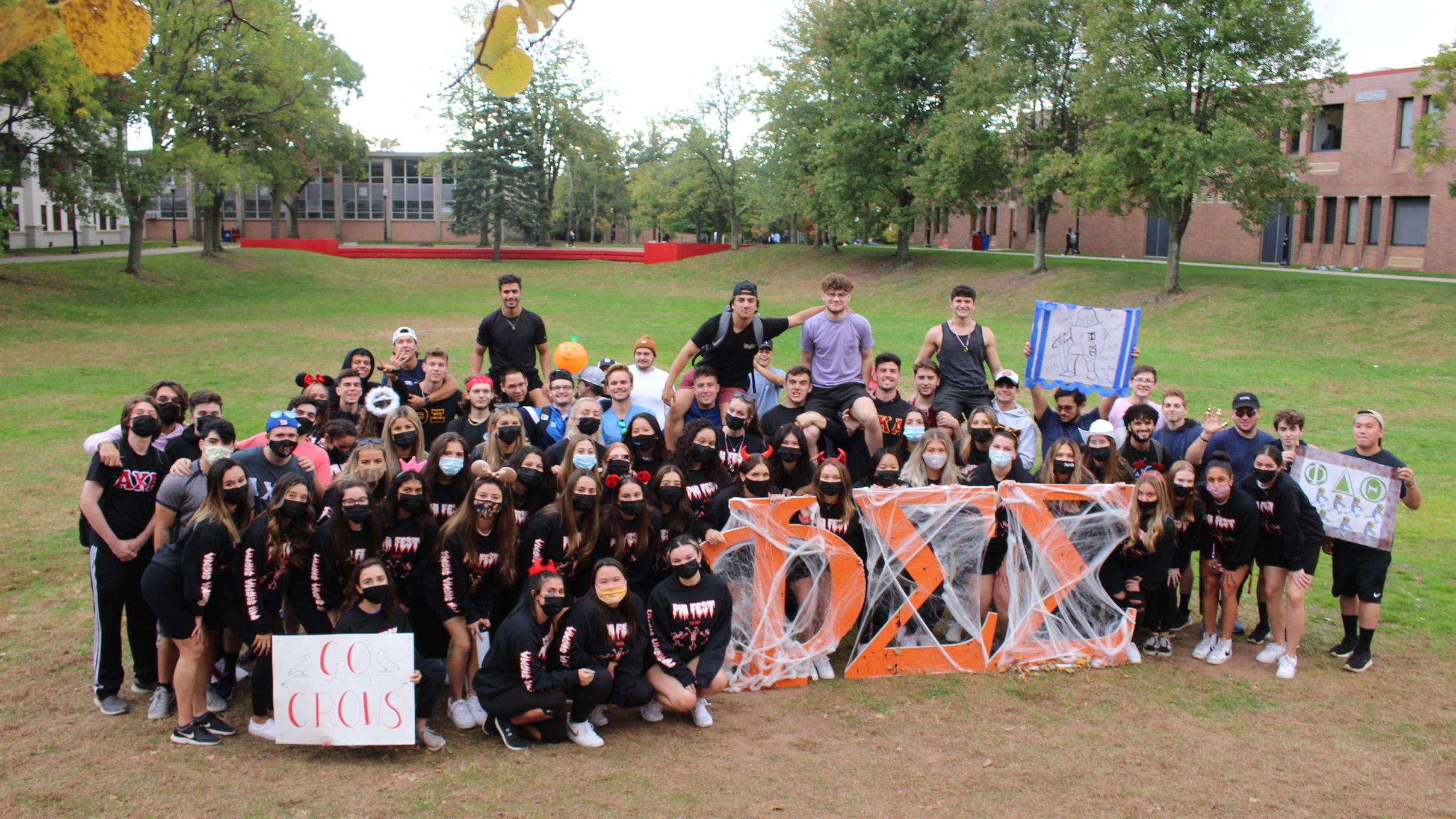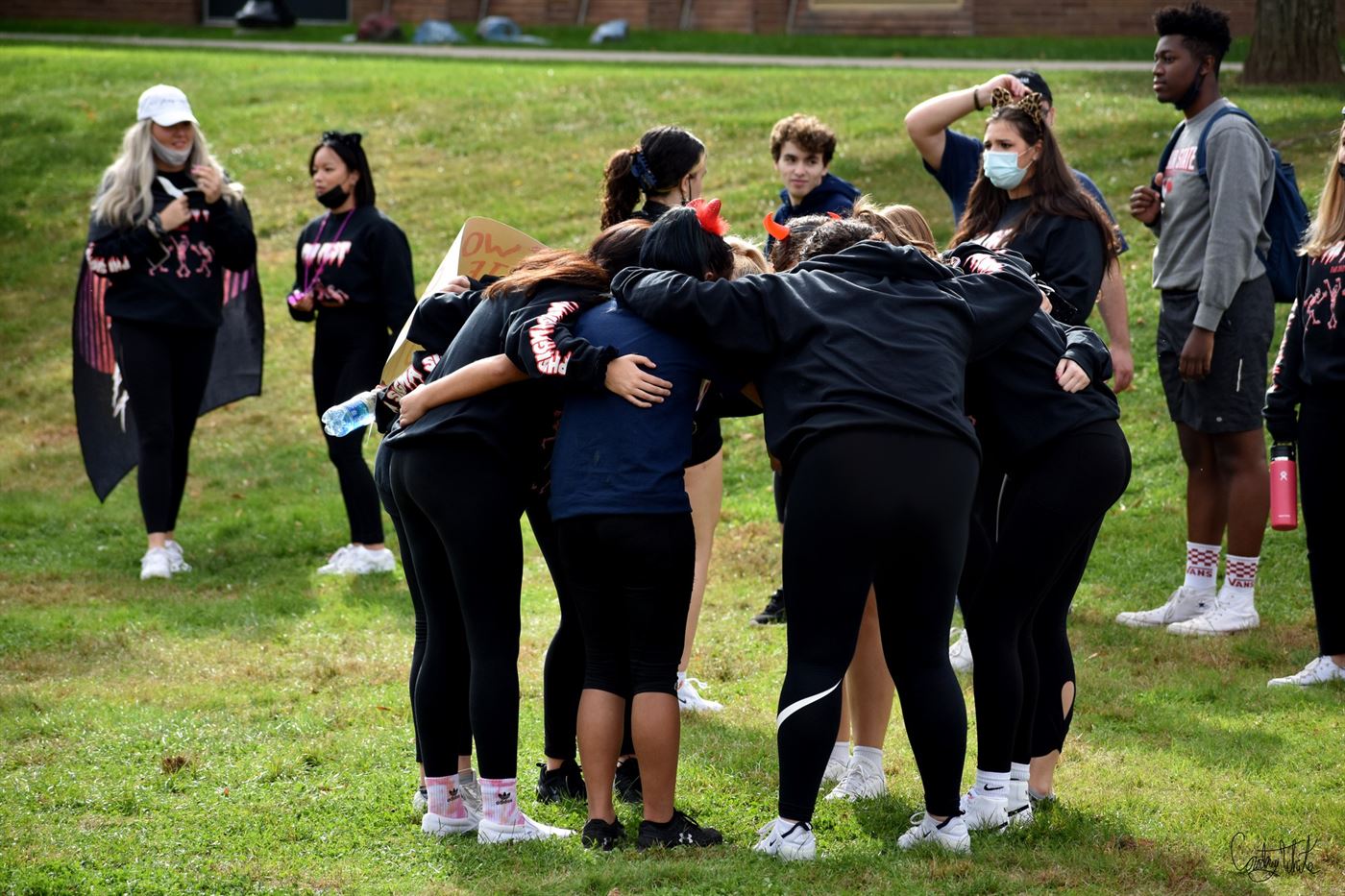#FocusDisruption is a collaboration of all the media outlets within Montclair State’s School of Communication and Media. Our goal is to report stories that highlight the effects or disruption of the last two years and the solutions that have come out of it. All aspects of day-to-day life have been altered but we will be primarily focusing on how mental health, education and the workplace have changed.
For many students, Greek life is a central tenet of their college experience. They could not imagine not doing philanthropic work or hosting events on campus, or going through the recruitment or initiation process to officially meet their brothers or sisters for life.
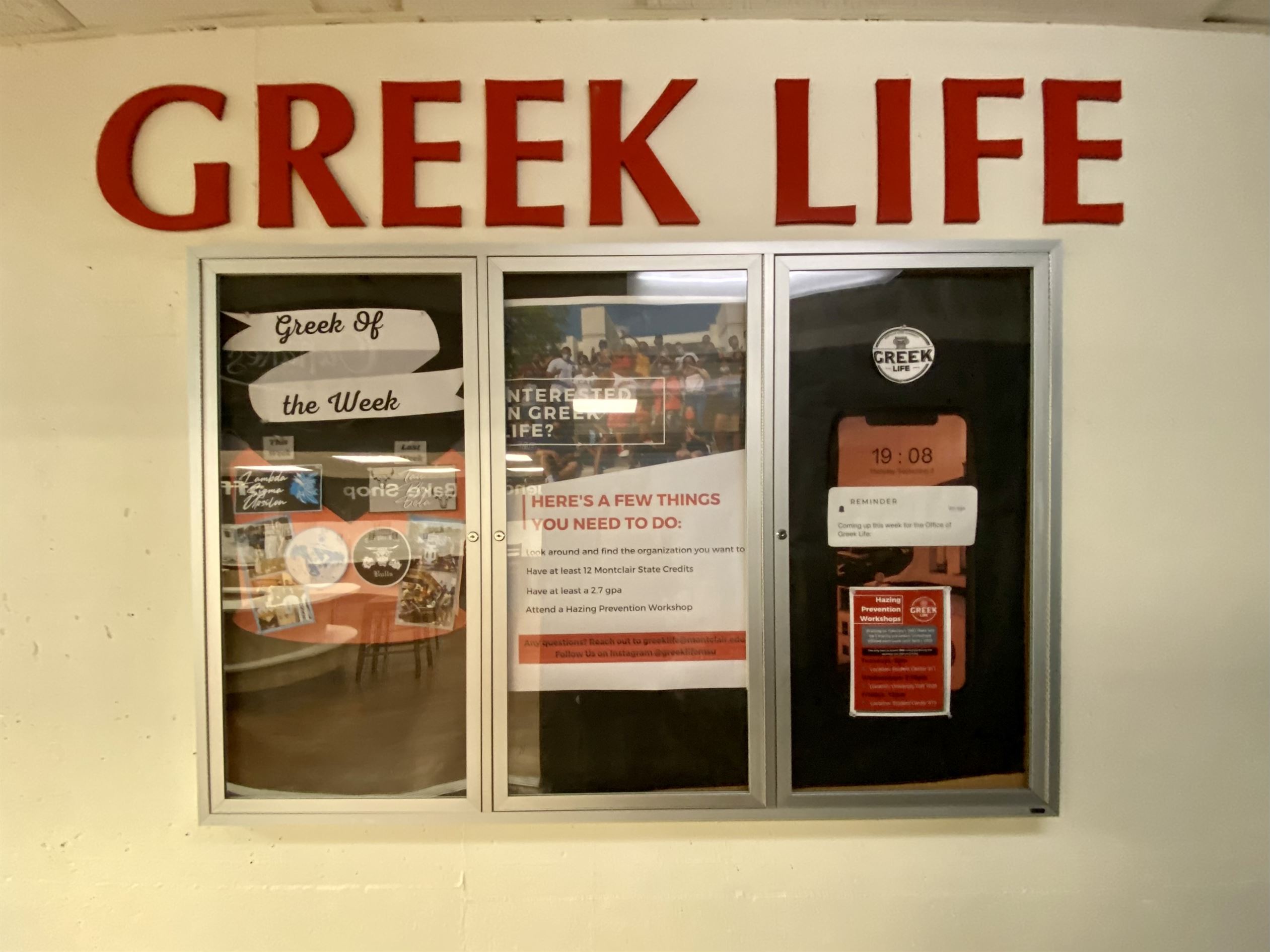
Greek life at Montclair State University took a big hit due to the social restrictions of the COVID-19 pandemic.
Sal DiMaggio | The Montclarion
But the entire world of Greek life was turned on its head when the coronavirus (COVID-19) pandemic struck in March 2020. When students were on Zoom and had to social distance, Greek life organizations had to find innovative ways to engage and interact with their members. Even two years later, they still are.
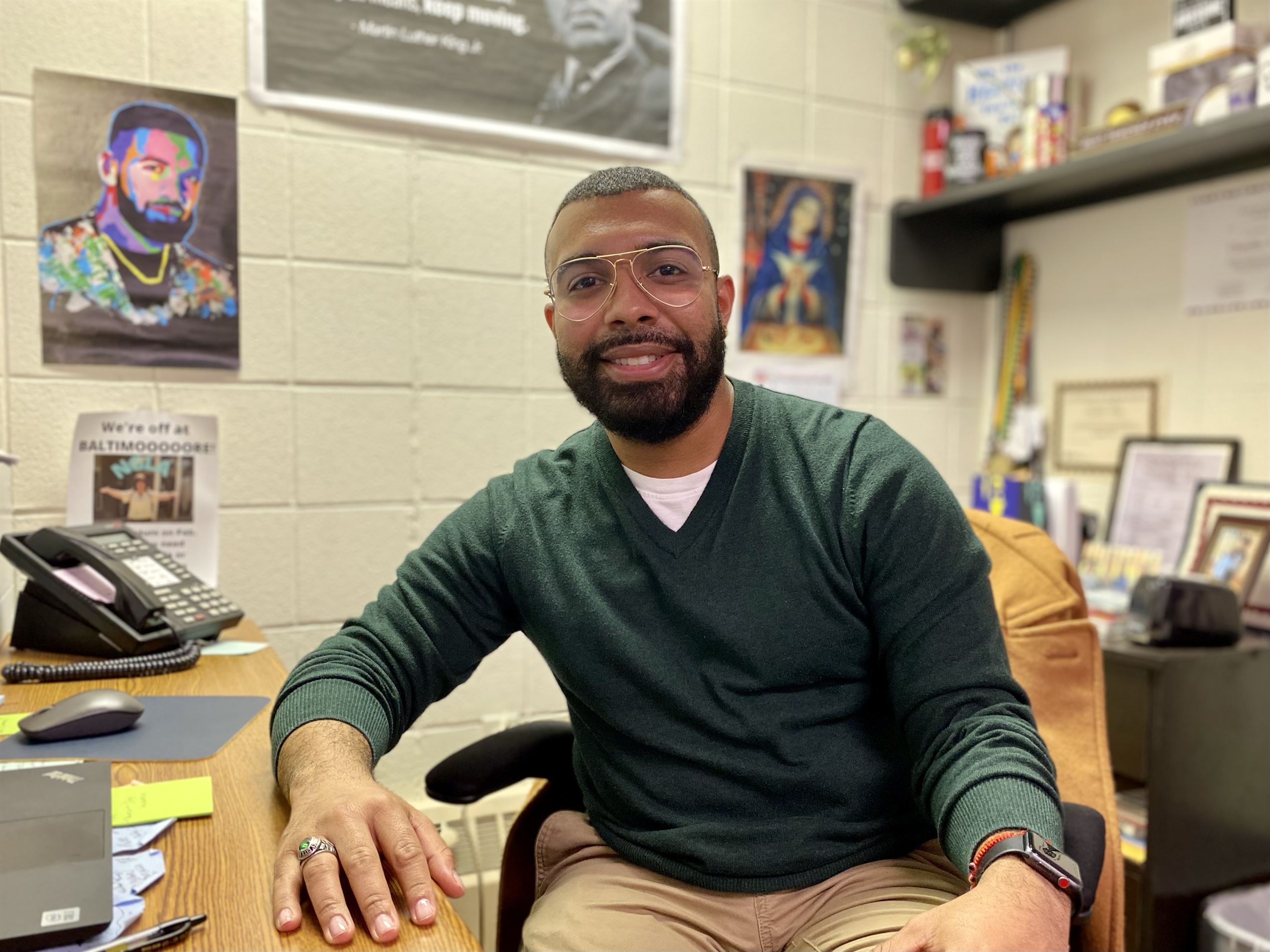
Claudio Alejo, the coordinator for Greek life at Montclair State, noticed a lot of confusion at the start of the COVID-19 pandemic.
Sal DiMaggio | The Montclarion
When COVID-19 first struck and students were sent into quarantine, fraternities and sororities scrambled to change their current ways of operating. Claudio Alejo, the coordinator of Greek life at Montclair State, said there was a lot of confusion among organizations.
“I think after the two-week mark thinking back to spring 2020, people are like, ‘Oh, snap, what’s really going on right now?’” Alejo said. “We were told just two weeks and then two weeks turned into a month [and a month turned into] two months and here we are in spring 2022, still trying to figure it out.”

Brett Berrodin, treasurer of Alpha Chi Rho at Montclair State, said the way his fraternity planned events was changed due to COVID-19.
Sal DiMaggio | The Montclarion
Brett Berrodin, a senior business analytics major and treasurer of the Montclair State chapter of Alpha Chi Rho, said the pandemic was definitely unexpected.
“We were hoping [that] maybe by the end of the summer [we would] be able to get out,” Berrodin said. “Things will come back to normal and then it just kept getting worse and worse. And then we just realized, ‘Alright, this is a lot bigger deal than we originally thought.’”
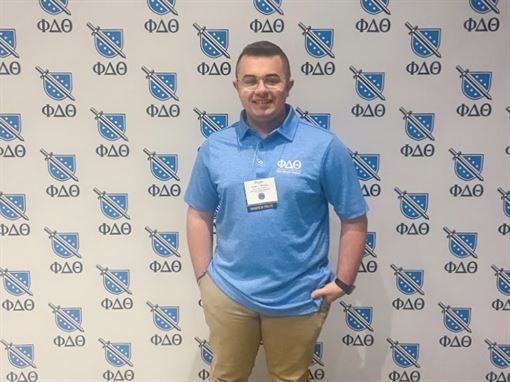
Ryan Breyta, president of Phi Delta Theta, has led his fraternity in targeting its messaging to connect with post-pandemic students.
Photo courtesy of Ryan Breta
Ryan Breyta, a junior journalism and digital media major and president of Phi Delta Theta, described how his fraternity struggled with getting enough members to become fully chartered, as Phi Delta Theta was a more recent organization.
“During that time period, we had to make sure that we had enough new members and it was hard during [COVID-19] because we had to adapt to Zoom,” Breyta said. “[The recruitment] process had to wait another year.”
The bonds that members of fraternities and sororities have with their fellow members are crucial to the Greek life experience. As one could imagine, having to social distance and meet via video call greatly impacted those bonds. Alejo explained the effect that being forced apart had on the future of Greek life.
“From spring 2020 to now, [we’ve seen] the virtual generation of Greeks,” Alejo said. “So when it comes to the socialization amongst the fraternities and the sororities, it might look very different. Now some folks might feel comfortable and excited to go back to that normalcy and tradition prior to the pandemic, but some of them, because they came around [during] that COVID generation might not feel as comfortable.”
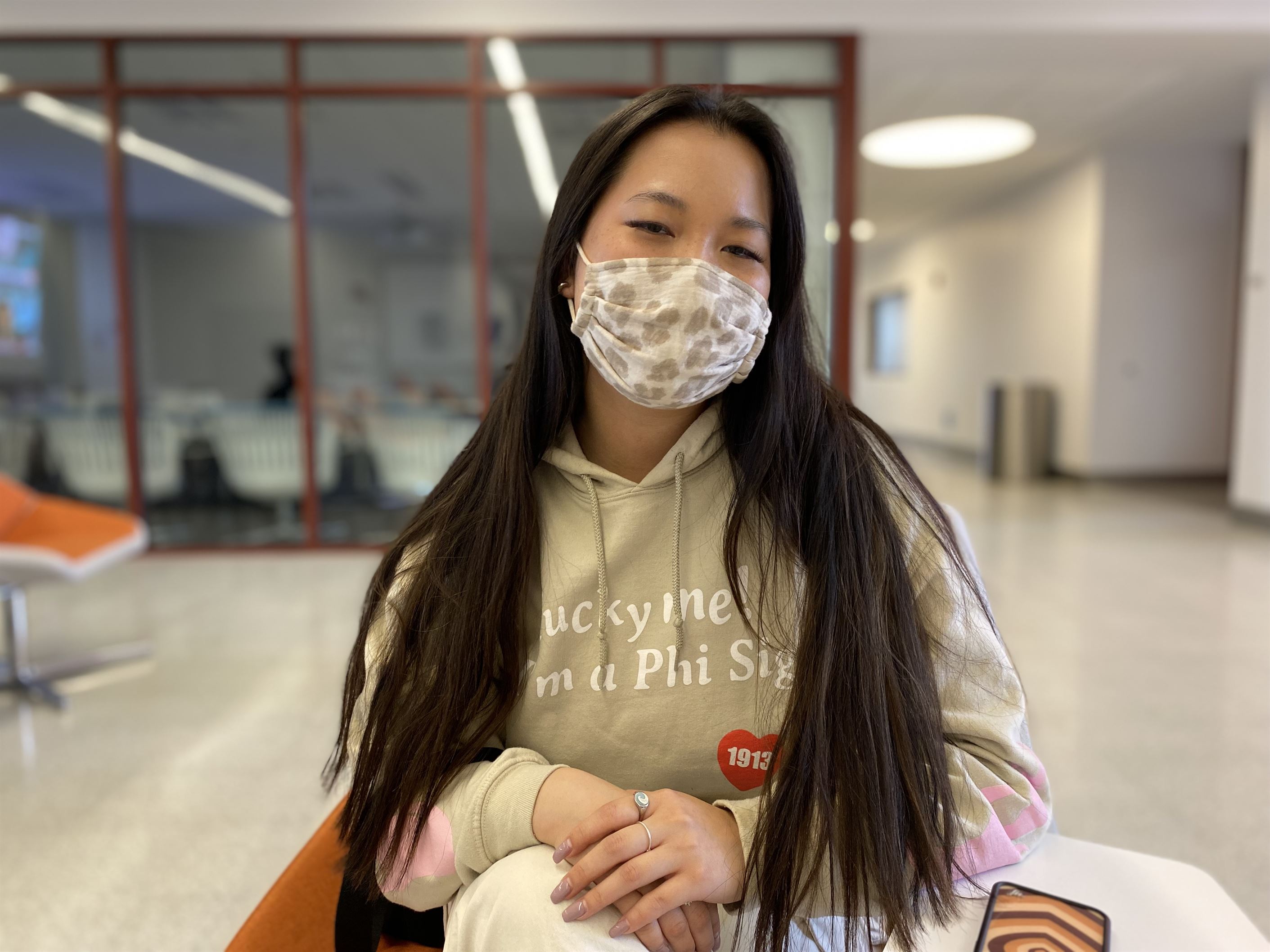
Nora Mackle, a junior nursing major, joined Phi Sigma Sigma during the pandemic.
Sal DiMaggio | The Montclarion
Nora Mackle, a junior nursing major, joined her sorority, Phi Sigma Sigma, during the pandemic. She said it was completely different from what she expected.
“I also only knew what sorority life and Greek life was through movies, TV shows and what I’ve seen online,” Mackle said. “So I just expected it to be a lot more involved. Obviously, now that the pandemic is changing a little bit, it’s less out there.”
Another change in thought came largely from focusing on how this “new generation of students” have had different priorities since the pandemic began, as Alejo has noticed.
“A lot of this generation of students now [are thinking] ‘How’s this going to benefit me?’” Alejo said. “So now I think it’s challenging our Greeks to really look at themselves as the incorporator organizations that they are, and they’re selling this business to their students and they’re really trying to help them develop as leaders, as professionals.”
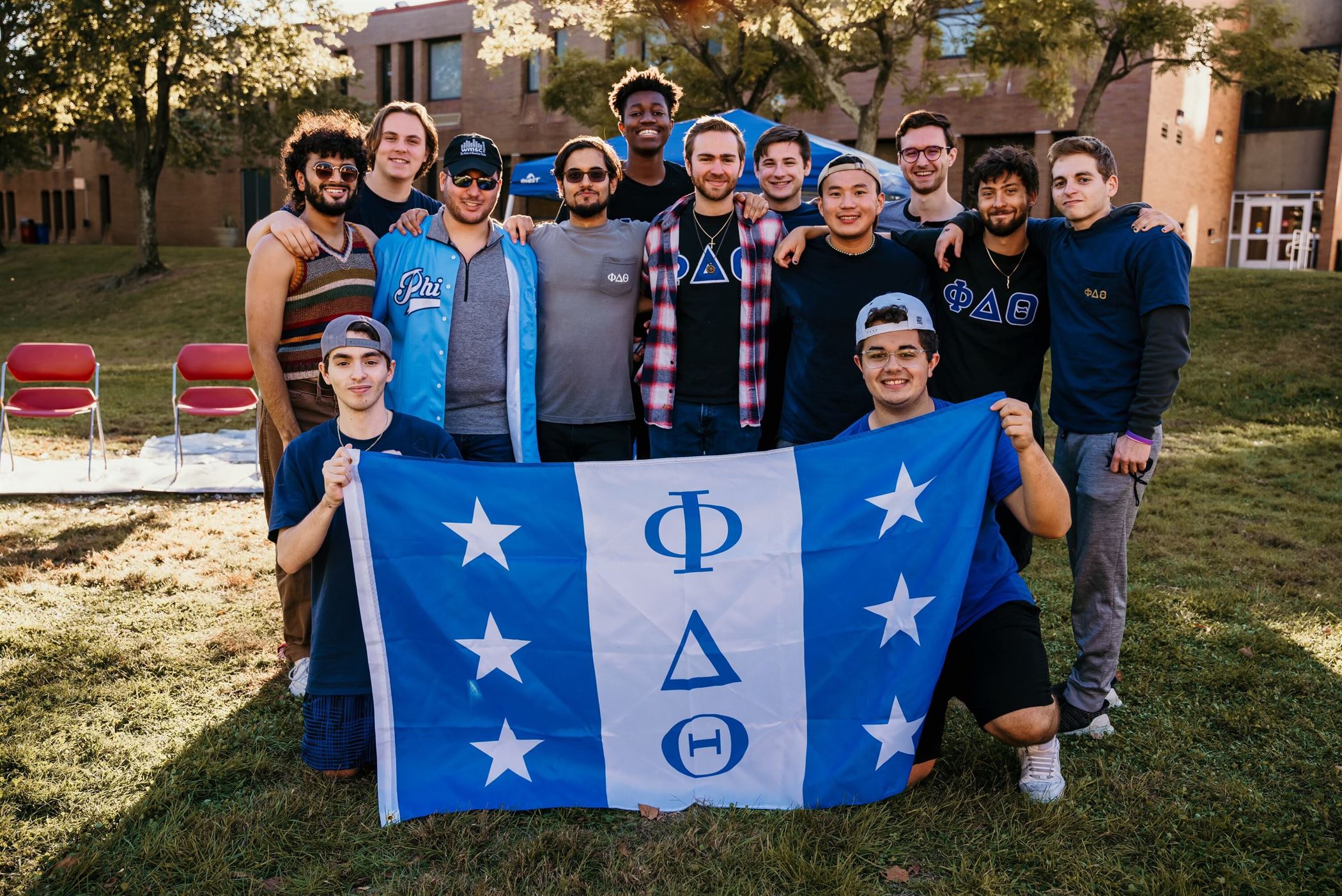
Phi Delta Theta, Breyta’s fraternity, has faced many challenges as its members have tried to start their fraternity throughout the pandemic.
Photo courtesy of Ryan Breyta
This is something Breyta has said his fraternity has already capitalized on through their attitude towards students.
“We want to stand out in our leadership, we want to stand out in our events [and] we want to stand out as students and people most importantly,” Breyta said. “Just because you’re in an organization that does not define you. What defines you is how you approach your life and what you do with it.”
Even just by being in her sorority, Mackle says she has developed skills that will help her in the professional world, such as time management.
“Being in Greek life also just makes me more organized, because I [have] to plan around whatever we were doing,” Mackle said. “For example, [one] week we had Greek week and I also had my nursing classes to do. But I wanted to do as much as I could, so every time I could, I would do an event so that I could stay active in my sorority.”
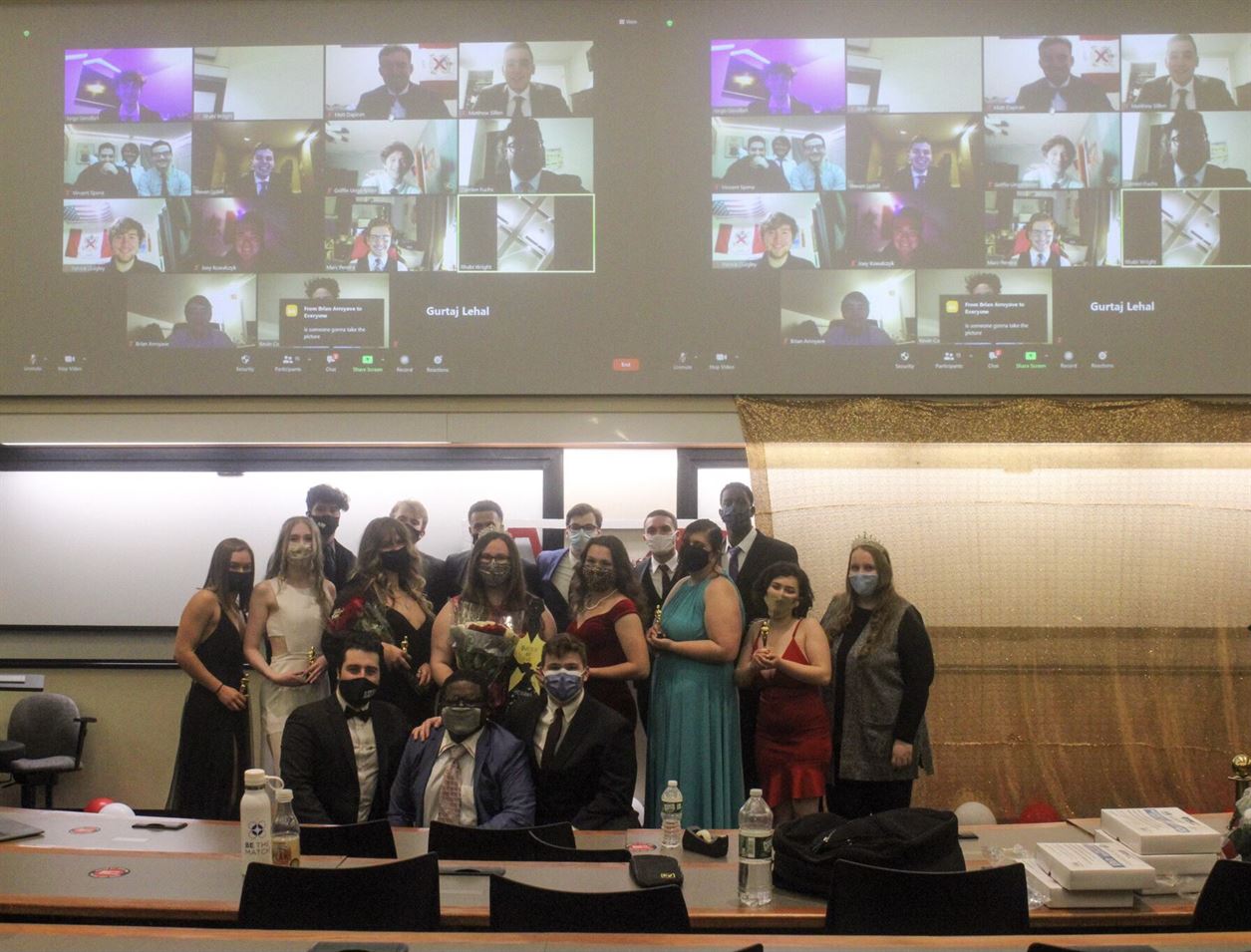
Members of Alpha Chi Rho, Berrodin’s fraternity, gather masked for a social event, with some joining via Zoom.
Photo courtesy of Corey Annan
When it comes to what’s ahead for Greek life at Montclair State, Alejo hopes things can continue to return to how they once were.
“I think plans moving forward, as far as going back to some of those traditional programs and experiences, [we will] slowly start bringing them back in as much as we’re able to, within the means of whatever [COVID-19] policies, procedures and precautions we have to take into account,” Alejo said.

